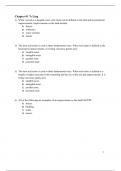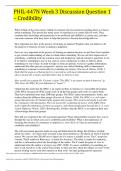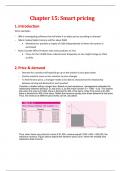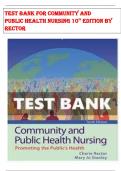Exam (elaborations)
IRM1501 PORTFOLIO (DETAILED ANSWERS) Semester 2 2024 - DISTINCTION GUARANTEED
- Module
- Institution
- Book
IRM1501 PORTFOLIO (DETAILED ANSWERS) Semester 2 2024 - DISTINCTION GUARANTEED - DISTINCTION GUARANTEED - DISTINCTION GUARANTEED Answers, guidelines, workings and references ...... QUESTION 1 Discuss empirical research and its components and provide examples where necessary. (15 marks) QUESTION 2...
[Show more]












